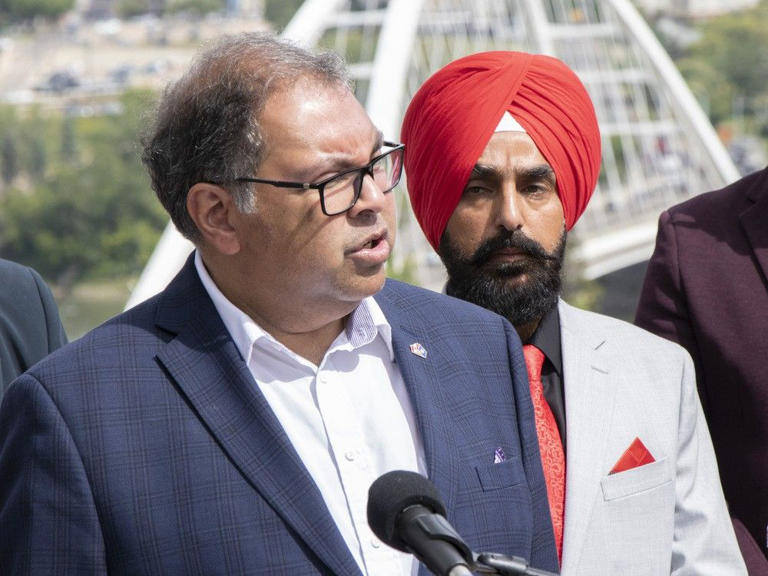Alberta NDP Leader Naheed Nenshi said Friday that he would not join other Western Canadian political leaders in calling on Ottawa to lift tariffs on Chinese-made electric vehicles, noting that the issue was outside his expertise. Speaking at a press conference in Calgary, Nenshi remarked that “the ban on Chinese EVs (is) a little outside of my pay grade,” though he acknowledged that the policy “clearly hasn’t worked the way it was supposed to work.”
Nenshi stressed the importance of Canada engaging directly with Beijing to resolve the escalating trade conflict, which has severely impacted Alberta farmers and the broader agricultural sector. He stopped short of saying whether Chinese EVs should be part of any negotiated deal, but reiterated his position that both Ottawa and Alberta’s provincial government must work with China to secure relief for farmers. Last month, he issued a statement urging supports for producers caught in the dispute.
The trade battle escalated after China imposed a 76 per cent tariff on Canadian canola seeds in retaliation for Canada’s 100 per cent surtax on Chinese electric vehicles introduced last fall. China is Canada’s largest canola seed export market, worth $4 billion last year, and early estimates suggest the tariff has already cost Western Canadian growers $140 million in just two weeks. Alberta and Saskatchewan account for approximately 85 per cent of Canada’s canola production.
Nenshi’s cautious remarks stand in contrast to Alberta Premier Danielle Smith, Saskatchewan Premier Scott Moe, and Saskatchewan NDP Leader Carla Beck, all of whom have urged Prime Minister Mark Carney to drop the EV surtax as a conciliatory step to resolve the canola dispute. Federal Conservative Leader Pierre Poilievre has also rejected those calls, warning that Chinese-made electric vehicles pose a national security threat, describing them as potential “roving surveillance” tools. Poilievre has instead called for Ottawa to cancel a $1-billion loan to BC Ferries for Chinese-built vessels.
The trade standoff continues to place Canadian farmers under mounting pressure, with no immediate resolution in sight.

